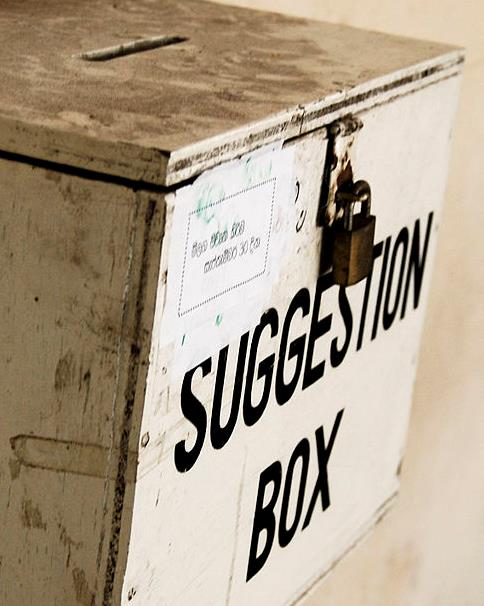 Employees have great ideas every day. Is your organization tapping into them?
Employees have great ideas every day. Is your organization tapping into them?
Maybe you’ve got a physical Suggestion Box that employees can drop paper notes into. Maybe you’ve taken the concept digital with an Idea Wiki or some other online tool.
Either way, unless HR and management make it a priority to regularly request (and implement) suggestions from the rank-and-file, that fertile soil of ideas will quickly dry up.
Here are five tips for your suggestion program:
1. Keep the process simple. Make it easy for employees to submit ideas, via paper and/or electronically. Use a standard form that asks a few basic questions about the idea. Make the name line optional.
2. Avoid the “black hole” syndrome. One problem with suggestion programs is that ideas gather dust before anyone gets around to opening “the box.” Best bet: Have someone in top management send a “Thanks for your idea” response within a day or two after the idea arrives.
3. Set goals for the program. If this year’s corporate plan focuses on improving productivity, tie suggestion program rewards to ideas for boosting department efficiency. Have a cross-functional team evaluate individual suggestions.
4. Create an atmosphere that fosters verbal suggestions. For example, buy lunch for employees once a month, and let them offer suggestions, ask questions or shoot the breeze with a different department head each month.
5. Share the rewards. Rewards can take many forms: gift certificates, extra vacation time or even a small percentage of any profits or cost savings resulting from the idea. Whatever the reward is, make it in a public format to encourage other suggestions.
Here are more suggestions from Business Management Daily readers …
Starbucks rewards. “We keep a stack of index cards by a slotted box in the breakroom. A sign above says “We consider all suggestions—both large and small. If yours is used, you will receive a $25 Starbucks gift card.” When employees hear of their co-workers actually receiving the gift cards, it motivates them to offer up their ideas.” — Morris
Anonymity frees the mind. “People in our office seemed concerned that they might be singled out if they suggested something controversial, so we created an electronic whiteboard that anyone can post a message on, and IT set it up so that it’s always anonymous if the user wants it to be. Posting times are scrambled so you can’t quite tell when something was put up.” — Charlotte
Levity scores points, too. “To make sure the suggestion box doesn’t fill up with only negativity, our boss always hands out a little prize for the funniest suggestion as well as the best one. Since this started, the number of contributions to the box has risen. — Blake
